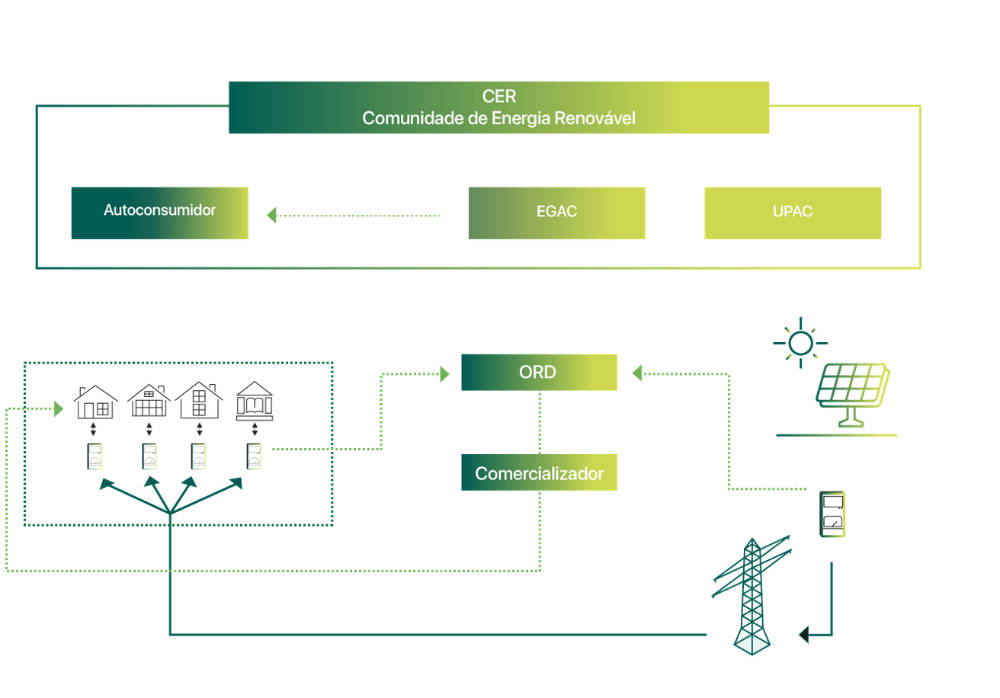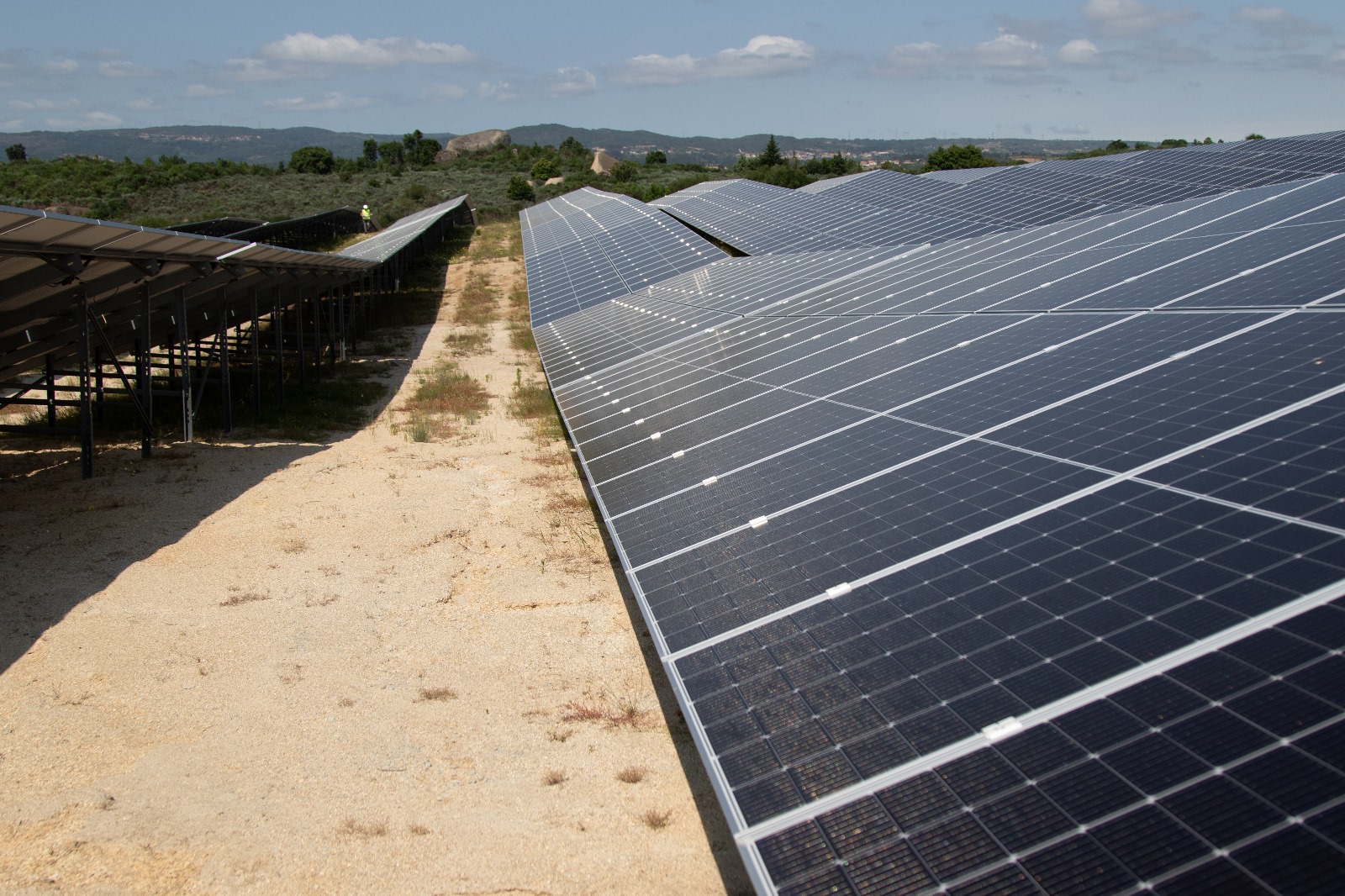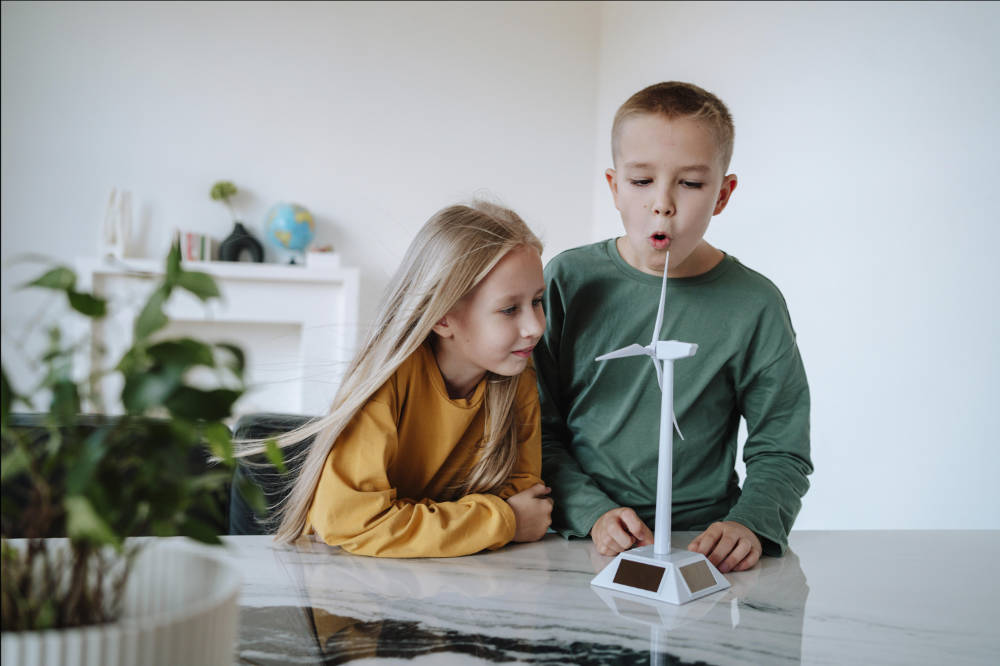Saturday 25th November 2023.
Implementing the goals stipulated in the Paris climate treaty of 2015, (COP 21), limiting global warming to significantly below two degree Celsius, if possible even to 1.5 degrees Celsius, compared to pre-industrial normal temperature, can only be achieved if humanity replaces fossil fuels by green, clean and sustainable technologies, for instance in electricity generation, mobility, food production, and so forth. However, climate neutrality cannot be achieved through technology and market dynamics. Involving citizens and local communities (cooperatives) in communal regions are decisive in shaping this transition in a democratic and fair way, and in order to ensure that all – or at least a good many people – may enjoy its economic, ecological and social advantages. Becoming climate neutral can begin right with energy production.
In Portugal we have a law dating from the year 2019. Energy cooperatives feed into a cooperative model created by the legislator, which is eminently suitable to connect citizens and local communities directly with facilities including solar power plants or wind farms creating renewable energies. This is called UPAC*. As energy cooperatives can have a strong social impact, they play an important role in society, well beyond the production of clean energy. Over the coming three weeks, ECO123 will be providing ten reasons behind the economic, social and ecological advantages of energy cooperatives! Example 1: this is also the story of the success of a single cooperative, the pioneer at that: its name is Coopernico and it is currently celebrating its ten-year anniversary: https://coopernico.org. The cooperative started its work long before that law was written. Boasting 4,487 members, Coopernico sells its clean electricity as of 21 November 2023 to 3,900 customers. Cooperatives work in a transparent way.
.*UPAC Unidade da Produção de Autoconsumo (self consumption)
1. Energy cooperatives provide local & clean energy
In terms of their projects, the European energy cooperatives‘ primary aim is to guarantee their members access to clean and local energy. By producing their own electricity they are also protecting their members from price fluctuations on the energy market, which is particularly relevant in times of crisis, as we are experiencing today. As evidenced by our research, over the past years for instance the energy prices of the commercial providers in Portugal, Spain and Germany were all more instable and more expensive than the tariffs operated by the energy cooperatives.
Example Number 2: let’s lift our gaze beyond our nose to look northwards, in the direction of the German-French border, to be exact, to the lake-side town of Losheim am See in the district of Merzig-Wadern. Over there they also have a cooperative like this, which produces plenty of clean energy for its 1,100 members, by means of 22 wind turbines and of what is called a Citizens Solar Park (a solar power station): https://beg-hochwald.de/
Does electricity equal water? The energy community model underlines the fact that energy (power) is a common good that should be accessible to everyone. It raises members’ awareness of the right to access to energy, but also for the responsibility to treat it as a scarce resource, promoting energy savings and optimisations.
2. Energy cooperatives mobilise local capital
Energy cooperatives mobilise local capital by enabling citizens and members of the local community to invest directly in projects and services. This also oftentimes serves to make electricity a lot cheaper. Estimates at European level reckon that by 2030 citizens would be able to mobilise over 200 billion for the energy transition.
Beyond that, investing saved capital in local projects supporting renewable energies reduces the amount of funds sitting in the banks and stops those being used for the further financing of energy projects based on fossil fuels, the main reason behind the current climate crisis with its heat waves, droughts, forest fires and flooding.
3. Energy cooperatives strengthen local development
Through their projects and activities, energy cooperatives are strengthening the competitiveness of the local companies, supporting key sectors, creating new business opportunities and synergies, and promote cooperation. Beyond that, energy cooperatives create new jobs in the local communities through their investments.
In the ten years of its life the Portuguese energy cooperative Coopernico has been able to gain nearly 5,000 members, who participate financially in their electricity provider, the cooperative, with a stake of at least three titles (3 x 20 euro). Beyond that, Coopernico created further opportunities for investment, to the tune of some 2.2 million euros in various other solar power plants. EU research shows that communal energy projects generate between two and eight times as much local revenue than a project implemented by an external agent (as shown by solar and wind power projects). In contrast to the large private providers including the EDP, Uniper or Iberdrola, which usually transfer the profits generated outside the community or the country (independently from where the investment is made), energy cooperatives will distribute their profits at local level. Their surplus will normally go to the members of the community, or is invested in local projects based on the needs of the community.
4. Energy cooperatives contribute to the protection of the environment
Usually, energy communities are more environmentally friendly than large companies listed on the stock exchange, as they develop smaller projects adapted to local conditions, and will discuss their impact first, before they are supervised and evaluated by the citizens themselves. After all it is the citizens deciding on their own environment.
5. Energy cooperatives help to save energy
The cleanest form of energy is the one that’s not used. Energy cooperatives inform and create awareness for saving energy and promote the rational energy use amongst their members. Research shows that members of energy cooperatives use less energy than other consumers. Beyond that energy cooperatives develop projects and services aimed at increasing energy efficiency and contribute to improved energy management with innovative projects and solutions, including shared mobility, demand response and energy storage. Every month new energy cooperatives are emerging in Portugal. Example no. 3: the latest initiative was founded on 16 November at Santa Casa da Misericórdia in Ovar, 40 km south of Porto in northern Portugal, as a new energy community. The founding members decided to install a solar power station with 2,100 solar modules: its capacity of 1,207,5 kwp represents an annual reduction of 840 tons of CO2, the equivalent of planting 5,904 new trees.
(Álvaro Silva, provedor da Santa Casa da Misericórdia de Ovar refere que “A Santa Casa está atenta aos desafios atuais. O que sofremos financeiramente com o aumento dos custos energéticos nos últimos dois anos, obrigou a tomar decisões. Ficamos satisfeitos com esta parceria com a SES porque vai ter um impacto muito positivo na redução dos custos energéticos da instituição. A componente ambiental é um permanente desafio e por isso este projeto tem essa dupla vantagem, reduzir custos e proteger o ambiente: win-win.“)
As Álvaro Silva, director of the Santa Casa da Misericórdia in Ovar, puts it: “Santa Casa is absolutely aware of the current challenges. The rise in energy costs over the past two years has forced us to make clear decisions. We are delighted with the partnership with the SES, (https://www.se-systems.pt/pt/comunidades-de-energia-1315/) as it will have a very positive impact on reducing our institution’s energy bills. The environmental component is a continuous challenge, which means this project has a double advantage, to lower costs, on the one hand, and to protect the environment on the other: it’s a win-win situation.“
The story of the energy cooperatives will be continued next week…
 Eco123 Revista da Economia e Ecologia
Eco123 Revista da Economia e Ecologia




